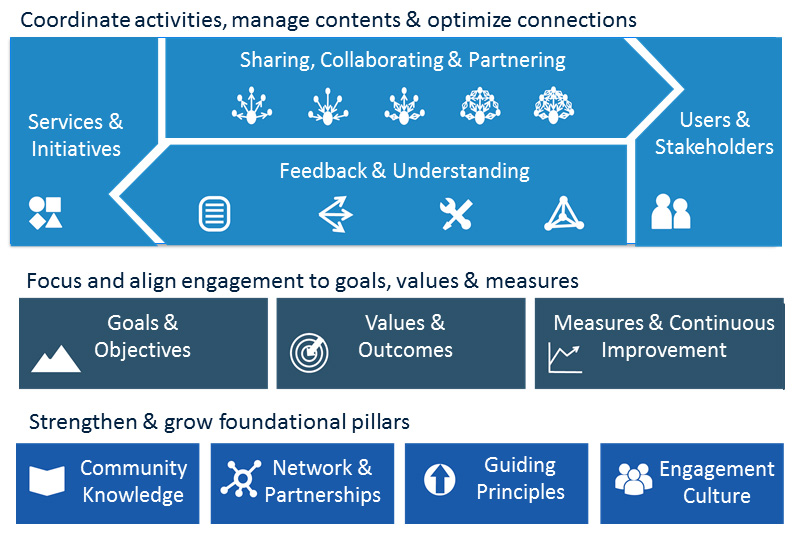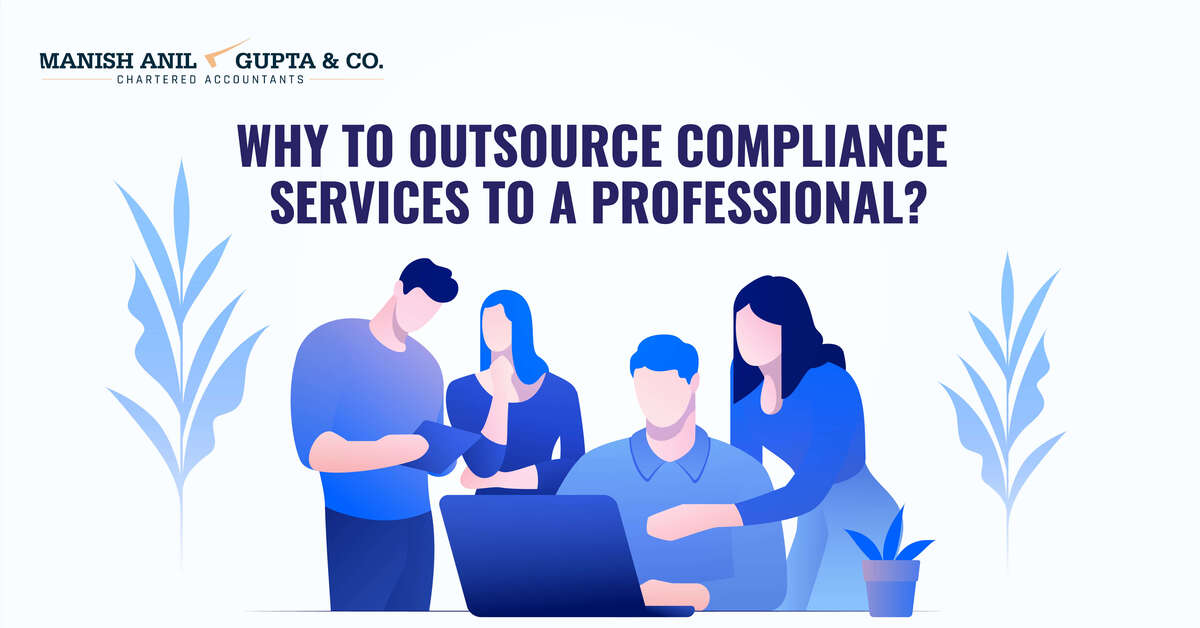Outsourcing Payroll: Maximize Efficiency And Minimize Expenses
페이지 정보

본문

✔ Outsourcing payroll may lower administrative burdens, conserve time, and ensure compliance with tax laws.
✔ Cost savings vary from 18%-35% usually compared to in-house payroll processing.
✔ Payroll companies handle wage computations, tax filings, direct deposits, benefits reductions, and more.
✔ Businesses of all sizes benefit, specifically those without devoted payroll staff.
✔ Choosing the right payroll service depends on business size, intricacy, and require for combination with existing systems.

Every other Friday, Lisa braced herself for what had basically end up being a continuous source of tension: payroll. As the office supervisor for a growing home services business, she used many hats: scheduling tasks, managing billings, managing HR jobs, and more. Payroll was simply one more obligation on her overflowing plate, and in spite of her finest efforts, something always seemed to go incorrect.

Last pay period, she overestimated overtime for 2 professionals, leading to a payroll correction that took hours to repair. The month before, a tax filing deadline slipped through the fractures, resulting in an expensive late charge. And after that there were the continuous questions from staff members about their incomes - was my bonus offer consisted of? Why are my reductions different this week? Is there still time to fix my punch card? When will I get my W-2?
Lisa's stress level was through the roof. Something had to change. Accordingly, Lisa started exploring her options. What if the company had another person manage payroll? By handing off payroll to an expert supplier, or, at the minimum, updating their software, she might get rid of the risk of errors, guarantee compliance with tax laws, and maximize hours each week to focus on running business.
Does your payroll journey simulate Lisa's? Is payroll a challenge that looms at the end of every other week? Luckily, you're not alone. In this post, we'll check out how outsourcing payroll works, the advantages it uses, and whether it's the ideal move for your company.
Outsourcing payroll is the practice of handing off payroll-related jobs to a third-party service provider who concentrates on processing salaries, taxes, and other compensation-related duties. Instead of managing payroll by hand - or juggling multiple software options - businesses can rely on experts to make sure workers are paid properly and on time while remaining certified with tax laws.
Payroll service providers manage a variety of jobs, including:
✅ Processing worker earnings and contractor payments;
✅ Calculating and submitting payroll taxes;
✅ Managing direct deposits and paper checks;
✅ Handling reductions, garnishments, and advantages contributions; and
✅ Staying up to date with ever-changing labor laws and tax rates.
Approximately 61% of companies outsource their payroll processes. The decision to outsource the entire function or section out portions, such as tax filings or direct deposit management, mostly depends upon business size, payroll complexity, and internal resources.
For larger services with workers throughout several states, payroll outsourcing can streamline compliance with various tax laws and guidelines. But little and mid-sized companies also benefit - specifically those without a devoted payroll professional. Given that payroll laws frequently alter, contracting out ensures organizations stay certified without needing to continuously monitor updates.
Years back, it was unheard of for business to entrust payroll to an outside company. But today, advances in payroll innovation make contracting out a cost-effective and efficient option. Whether you require full-service payroll assistance or just assist with specific jobs, outsourcing can maximize important time, lower administrative headaches, and offer entrepreneur assurance. Statistics back this up. According to a PwC study, business that outsource their payroll operates experience expense decreases of 18%-35%, on average.
Is outsourcing payroll the best choice for your business? In the next area, we'll check out the crucial benefits and potential drawbacks to assist you decide. If not, a best practice might consist of upgrading your internal software application. While we're prejudiced, a solution like OnTheClock allows you to encapsulate time tracking, scheduling, and payroll in one platform. No more third-party costs, delays, or mistakes!
Don't let taxes get you down. Make payroll simple with OnTheClock!
Your hassle-free service for payroll.
The Benefits of Outsourcing Payroll
Having your personnel total payroll might appear like a cost-savings measure; nevertheless, the reality is that it's often lengthy, complex, and susceptible to costly errors. Outsourcing payroll uses businesses a streamlined, protected, and economical solution. Here's how it can benefit your company:
Save Time and Boost Productivity: Payroll isn't practically transferring revenue - it involves tracking hours, calculating taxes, managing benefits deductions, and making sure compliance with ever-changing guidelines. For little services, this responsibility often falls on a bachelor or a small HR team, pulling focus far from tactical efforts. Outsourcing payroll removes these time-consuming jobs, maximizing your team to concentrate on development and employee engagement.
Reduce Payroll Costs: Many little and mid-sized services discover that contracting out payroll is more economical than keeping an in-house payroll team. The costs connected with payroll software application, staff member training, tax filing, and compliance management can add up rapidly. By outsourcing, business can access professional payroll services at a predictable month-to-month expense - typically less than the expenditure of employing a full-time payroll specialist.
Minimize Errors and Ensure Compliance: Payroll mistakes aren't just discouraging - they can result in substantial financial charges. From overlooking tax withholdings to missing out on due dates, mistakes can set off audits, fines, and unhappy workers. Payroll companies concentrate on tax compliance, keeping up to date on federal, state, and local regulations to ensure accurate filings and prompt payments.
Enhance Data Security: Payroll information consists of delicate worker details, such as Social Security numbers and bank account details. Cybersecurity dangers and internal fraud dangers make payroll security a leading priority. Professional payroll providers purchase sophisticated encryption, protected cloud storage, and multifactor authentication to keep your business's financial data safe.
Avoid Payroll Disruptions: If your in-house payroll expert takes a vacation, gets ill, or leaves the company, payroll operations can be tossed into turmoil. Outsourcing supplies continuity and reliability, making sure payroll is processed precisely and on time, every time.
Simplify Direct Deposit and Benefits Integration: Many small companies battle to establish direct deposit or correctly integrate payroll with advantages administration. Payroll suppliers simplify this procedure, making sure staff members are paid without delay and deductions for benefits like medical insurance and retirement plans are managed properly.
Scale With Your Business: As your business grows, payroll complexity boosts. More staff members indicate more tax commitments, advantage alternatives, and compliance requirements. A payroll supplier can scale with your service, adjusting to new difficulties without needing you to employ additional HR personnel.
The Downsides of Outsourcing Payroll
While contracting out payroll can save time and minimize administrative burdens, it's not without its difficulties. Before devoting to an external service provider, it's necessary to weigh the possible disadvantages and identify whether the trade-offs align with your company's needs.
Loss of Control Over Payroll Processes: When you outsource payroll, you relinquish direct oversight of vital payroll functions. While automation and devoted payroll professionals can decrease mistakes, you may have limited presence into the procedure. If an error occurs, such as an inaccurate income or a missed tax filing, it might take longer to fix than if payroll were dealt with in-house. Additionally, you might have to rely on consumer assistance teams with varying levels of responsiveness instead of making instant adjustments yourself.
Data Security Concerns: Outsourcing needs sharing sensitive staff member details, consisting of Social Security numbers, wages, and tax details, with a 3rd party. While many payroll service providers implement robust security measures, information breaches remain a threat. Additionally, due to the fact that you don't manage their security procedures, you're depending on their capability to safeguard worker data. Any lapse in security could cause identity theft, compliance issues, or financial losses.
Limited Customization and Flexibility: Payroll suppliers normally provide standardized services that might not completely align with your company's needs. If your service has distinct payroll structures, such as specialized rewards, commissions, or industry-specific reductions, adjusting to a third-party system can be tough. Furthermore, last-minute payroll adjustments, such as including an expense repayment or remedying a tax code, may not be as seamless as they would be with an internal payroll group.
Potential Hidden Costs: While outsourcing can appear economical, expenses can build up beyond the base subscription cost. Some suppliers charge additional for year-end tax filings, compliance updates, off-cycle payroll runs, or integration with other company software. If your company requires frequent payroll modifications or personalized reporting, these extra costs can quickly surpass the initial budget plan. Employee Experience Challenges: When payroll is contracted out, workers often need to contact a third-party provider for payroll-related questions or concerns. This can create a detach, as staff members may have a hard time with impersonal client service, long wait times, or inconsistent assistance quality. Unlike an in-house payroll group that comprehends company culture and policies, an outsourced service provider may not provide the same level of familiarity or responsiveness.
Dependency on Provider Stability: Relying on an external company for payroll indicates your company is susceptible to its functional stability. If the service provider experiences financial trouble, technical failures, or abrupt service interruptions, your payroll process might be impacted. In severe cases, a service provider closing down all of a sudden might result in lost payroll data and significant operational headaches.
The Different Kinds Of Payroll Services
Not all payroll outsourcing services are produced equivalent. Businesses have different needs, and payroll providers offer different levels of service to accommodate them. Whether you desire to hand off everything or maintain some control, there's an outsourcing model that fits your business. Here are the primary types of outsourced payroll services:
1. Full-Service Payroll Outsourcing: If you're looking for a totally hands-off technique, full-service payroll outsourcing is the way to go. This type of company handles every element of payroll, consisting of:
- Calculating incomes and reductions;
- Managing tax filings and compliance;
- Administering staff member advantages; and
- Handling direct deposits and incomes.
With a full-service supplier, all you require to do is provide staff member data, such as hours worked and wage updates. While this choice is the most practical, it likewise tends to be the most costly. Plus, businesses require a dependable system for sharing precise payroll details on time.

2. Partial Payroll Outsourcing: For businesses that prefer to retain some control over payroll however offload complex jobs, partial outsourcing is a great middle ground. Companies may select to:
- Manage worker time tracking and attendance in-house while contracting out tax filing;
- Handle direct deposit themselves but outsource compliance and reporting; and
- Keep payroll processing internal but use an external supplier for year-end tax types.
This design enables companies to minimize their administrative burden while maintaining oversight on vital payroll functions.
3. Cloud-Based Payroll Services: Cloud-based payroll contracting out offers versatility and real-time access to payroll data. These services:
- Automate payroll computations and tax filings;
- Allow staff members to gain access to pay stubs and tax documents through self-service websites; and
- Integrate with accounting and HR software.
Since cloud payroll services are web-based, businesses can handle payroll from anywhere. This alternative is ideal for remote groups and growing companies that require scalability.
4. International Payroll Outsourcing: For business with a worldwide labor force, international payroll suppliers streamline the complexities of managing staff members across different nations. These services:
- Ensure compliance with local tax laws and labor regulations;
- Handle multi-currency payroll processing; and
- Manage cross-border payroll tax filings.
Outsourcing international payroll can avoid expensive compliance errors while improving payments for abroad staff members.
5. DIY Payroll with Provider Support: Some payroll service providers offer a hybrid method where companies handle most payroll jobs however utilize software and tools provided by the contracting out company. This design is ideal for companies that:
- Want to preserve direct control over payroll processing;
- Need automation tools to streamline estimations; and
- Prefer professional assistance for compliance concerns.
This method combines the flexibility of internal payroll with the security of expert guidance.
How to Choose the Proper Payroll Partner
The ideal payroll service depends upon your business's size, structure, and requires. If you want a completely trouble-free experience, full-service outsourcing might be the finest option. If you require flexibility, partial or cloud-based options may be a much better fit. Here's a list of actions you should think about when choosing the best payroll provider.
Define Your Payroll Needs: Before comparing providers, summary exactly what you require from a payroll service. Are you searching for full-service payroll that handles whatever, or do you choose partial payroll contracting out where you retain control over certain jobs? Consider functions like direct deposit, tax filing, advantages administration, and compliance tracking. If your company operates in numerous places or uses remote workers, you may also require multistate or worldwide payroll capabilities.
Integration with Existing Tools: A seamless payroll process depends upon how well your payroll provider incorporates with your existing systems. Try to find solutions that connect with your scheduling software, HR platforms, and time tracking tools. Proper combination can decrease manual data entry, reduce errors, and enhance general performance.
Compliance and Tax Expertise: Payroll is more than just paying employees - it involves tax filings, reductions, and compliance with labor laws. A trustworthy payroll partner ought to keep up to date with changes in tax regulations and guarantee precise reporting to avoid pricey penalties. Ask prospective companies about their compliance processes and how they deal with updates to federal, state, and local tax laws.
Pricing Structure and Value: Cost is a major aspect when picking a payroll supplier, however the cheapest option isn't always the finest. Compare prices models, as some service providers charge a flat month-to-month fee, while others bill per pay period or per staff member. Many payroll solutions, including OnTheClock Payroll, tend to be around $40 each month and $6 per staff member. Be sure to represent any extra costs for tax filings, direct deposits, or HR add-ons. The very best payroll partner uses a balance of affordability and value, conserving you time and lowering payroll-related headaches.
Customer Support and Service Quality: Payroll errors can be difficult, so having access to responsive client support is essential. Evaluate the provider's service options: Do they offer live phone assistance, chat, or email support? Check online evaluations and reviews to evaluate their reputation for customer service. A payroll partner with strong assistance can rapidly fix problems and keep payroll running efficiently.
Security and Data Protection: Payroll data consists of sensitive staff member info, making security a leading priority. Ensure your payroll service provider uses strong file encryption, multi-factor authentication, and secure servers to safeguard against cyber dangers. Inquire about their information backup policies and how they manage security breaches.
Scalability and Flexibility: Your payroll requirements might develop as your business grows. Choose a provider that can scale with you, whether you're including brand-new workers, expanding to multiple locations, or requiring extra features like advantages management or time tracking. A flexible payroll partner will accommodate modifications without needing a significant overhaul of your payroll process.
Service Level Agreements (SLAs): A reliable payroll provider ought to offer clear service level arrangements (SLAs) that lay out essential performance expectations, such as payroll precision, processing times, and compliance assurances. These agreements help guarantee accountability and supply a benchmark for evaluating service quality.
Reputation and Industry Experience: Finally, research study the provider's track record. Look for client reviews, market accreditations, and case studies that show their competence. If possible, pick a payroll partner with experience in your market, as they'll be familiar with sector-specific payroll requirements and compliance obstacles.
Outsourcing Payroll: Common Challenges and Best Practices
Outsourcing payroll can be a game-changer for businesses, lowering administrative workload, enhancing accuracy, and making sure compliance. However, handing over such an important function comes with its own set of difficulties. If not managed properly, business can face communication breakdowns, security threats, and compliance concerns. Below are some common hurdles businesses experience when contracting out payroll and some steps to help overcome them.
Loss of Control Over Payroll Processes
When you contract out payroll, you give up direct oversight of payroll computations, tax filings, and staff member payments. This can result in concerns about transparency, precision, and responsiveness.
- Choose a provider that uses real-time reporting and payroll dashboards so you can keep an eye on deals.
- Establish clear expectations from the outset, consisting of due dates, data precision requirements, and escalation procedures.
- Maintain internal payroll know-how to examine reports and ensure payroll precision.
Communication Breakdowns
An absence of appropriate interaction between your company and the payroll provider can result in mistakes, hold-ups, and frustration. Misunderstandings about information submissions, reporting requirements, and employee classifications can trigger significant disturbances.
- Designate a dedicated point of contact on both sides to make sure smooth communication.
- Set up regular check-ins to evaluate payroll processes, fix problems, and supply updates.
- Use cloud-based payroll platforms that permit real-time access to reports and automated notifications.
Data Security and Privacy Risks
Payroll information consists of extremely sensitive employee details, consisting of Social Security numbers, bank details, and income records. A security breach can result in identity theft, financial fraud, and legal liabilities.
- Deal with a provider that uses sophisticated encryption, multifactor authentication, and safe data storage.
- Limit access to payroll information by specifying user functions and consents within the system.
- Regularly review the provider's security policies and require compliance with market requirements like SOC 2 and GDPR.
Compliance and Regulatory Risks
Payroll laws and tax regulations frequently alter, and noncompliance can lead to hefty fines and charges. If your payroll company fails to stay updated, your service might be at threat.
- Partner with a provider that focuses on your industry and is fluent in federal, state, and local tax laws.
- Request routine compliance audits to ensure payroll tax filings and worker classifications are precise.
- Maintain internal oversight by remaining informed about payroll regulations that impact your organization.
Hidden Fees and Unexpected Costs
Some payroll companies charge extra for services like tax filings, compliance updates, and software upgrades. Without a clear understanding of costs, services can face budget plan overruns.
- Review the contract completely before finalizing and clarify all costs, including per-payroll charges, year-end reporting charges, and add-on services.
- Choose a provider with transparent, extensive pricing to prevent unexpected costs.
- Regularly examine whether the payroll service is economical for your .

Integration Challenges
If your payroll provider's system doesn't integrate efficiently with your existing accounting, HR, or time tracking software, it can lead to ineffectiveness and manual information entry mistakes.
How to Overcome It
- Select a provider that offers seamless combination with your existing tools, such as QuickBooks or OnTheClock.
- Test the integration before fully transitioning to outsourced payroll to recognize potential concerns.
- Work carefully with your supplier to customize information exports and imports for accuracy and effectiveness.
Final Thoughts

Lisa's story is all too familiar to many entrepreneur and workplace supervisors. Payroll mistakes, compliance concerns, and continuous disruptions can turn payday into a source of stress instead of a simple procedure. By outsourcing payroll, Lisa took control of her time, minimized mistakes, and guaranteed her group was paid properly and on time.
If payroll has ended up being a concern for your company, it may be time to explore a better option. OnTheClock Payroll simplifies the process, so you can focus on running your organization - not stressing over paychecks. Ready to simplify payroll? Try OnTheClock Payroll today and let us deal with the heavy lifting so that you can concentrate on what matters most: growing your organization!
- 이전글Play Exciting Slot Games absolutely free Online in Thailand 25.07.08
- 다음글Play m98 Gambling enterprise Online in Thailand 25.07.08
댓글목록
등록된 댓글이 없습니다.
